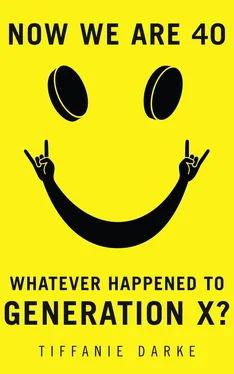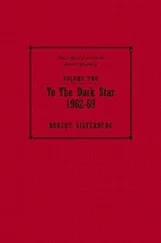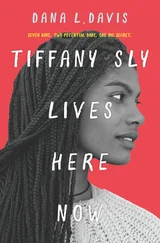Every kid who dropped one of those tablets – Doves, Rhubarb and Custard, Pink Cadillacs, Mitsubishi; they were given cutesie names to describe the experience they gave – felt the ‘shoom’ as the rush tore through their body, and the transitory, almost hallucinatory feeling that they had found the secret key to a better world, one where everyone could come together and live in sweet harmony.
‘There was a lot of spirituality in the music. Songs of hope, like Joe Smooth’s “Promised Land”, were gospel-driven records. All these records out of Chicago and New York were made by former disco producers who were really into gospel and great songwriting, and that fuelled all this optimism and hope and unity – and change. With everything that was going on, this was quite overwhelming to some people.’
There were a lot of sweaty hugs and ‘I really love you, man’ uttered in the early hours of the morning on heaving dance floors, often just to the stranger standing next to you – whoever they were. ‘You’d go out with one set of friends and come home with another,’ says Holloway. ‘It smashed down the walls,’ says Rampling. It helped everyone feel everyone else’s importance, it put us all on an equal footing.
There was one apocryphal moment in Shoom when a punter opened a page in the Bible and insisted that Daniel – Jesus’ disciple – was in fact Danny Rampling. ‘This is you! This is you! This is what’s happening now!’ he insisted. ‘These people were using a lot of LSD,’ grins Rampling.
Parts of the country that did not have access to nightclubs were just as involved – in the form of illegal raves conducted outside in fields or inside in disused warehouses. They were staged by the traveller community, do-it-yourself DJs, sound systems and party collectives, as the craze spread like wildfire through the towns and country.
‘I was living in the Somerset countryside at the time,’ says the fashion designer Alice Temperley. ‘It was like discovering this underground culture. The whole thing started with the music and that sense of liberation, that you felt like you were able to express yourself. It was like being swept up in a cult-like movement, you felt you were part of something, part of a pack. I was about fifteen or sixteen, and in some sense it was just kids wanting to misbehave – getting into a car and ending up in a convoy in some field and partying until sunrise – but it was very seductive.’
A couple who straddled both scenes, fields and clubs, were Pearl Lowe and Danny Goffey. Pearl was a fixture on the London club scene, Danny was a schoolkid in Oxford. Both went on to form successful bands and become part of the tapestry of Nineties culture, but this was where it started.
‘I was expelled from Wheatley Park Comp in Oxford just at the start of the illegal rave thing,’ says Danny. ‘The sound system Spiral Tribe was going all round Oxfordshire. I didn’t tell my parents I’d been chucked out of school. Instead I signed on and started to hang out at travellers’ sites, going off in convoys to Gloucestershire or wherever the next rave was happening. I went to stay in a caravan with some travellers called Chris and Julie. I used to smoke dope with them and listen to techno. They had an Alsatian dog called Skewer. It was a bit like a second home for a while. I started a band called the Jennifers. Chris played guitar; he was in a band called White Lightning after the acid. We used to sit up and play really mad music, lots of Hawkwind and rave. He was into thrash metal – that was the crossover of those two scenes – sort of crusty dance.’
‘I was putting on nights in Chelsea with two friends,’ says Pearl. ‘The three of us hosted these raves for this dodgy guy. We would go up the Kings Road with flyers, and he would make loads of money – there were queues down the road. We’d go to Subterrania on Friday nights and my friend Jasmine Lewis, who was quite a big model, and I would dance on the stage. Joe Corré, Steve Strange, Jeanette Calliva were all there. Then there was the Limelight that everyone went to, Boy George and Rusty Egan and Philip Salon. Es had just come out, so we would end up at Ministry of Sound at 5 am.’
‘In London things were trending quite quickly,’ says Danny. ‘Where I was, there were no clubs, or one in Oxford. So when that all kicked in it was a scene like punk – everyone who was my age got really into it. Everyone who could drive would go off on these two-day adventures. Then the band started kicking off, and Oxford seemed quite small, and I wanted to move to London. We got signed and then I met Pearl and went to live in her house.’ The tribes started to move together.
Before it became polluted by gangs and bad drugs, marketing and commoditisation, the house music scene had a very positive effect on society. It quelled the football terraces, brought down class, sex and race barriers, and imbued an entire generation with the belief they could go out and express themselves, do something they believed in. ‘It was a Do It Yourself culture,’ says Rampling. ‘We created our own industry and scene, which allowed people to create their own jobs and follow their dreams, whereas punk, which certainly had great energy, had been all about anarchy – leave your job and stick two fingers up. It was very destructive. Acid house, by contrast, was all about positivity, hope, optimism and bringing people together.’
The DIY nature of the movement – that it was happening despite government and law – was profoundly influential. Why trust and accept the structures around you, if they don’t trust or accept you?
The size of the scene eventually became too much to ignore, and led to the Criminal Justice Bill. Bizarrely wide-ranging, the bill sought to criminalise offences previously termed as ‘civil’, giving police and the courts greater powers to prosecute. It included everything from extending the definition of rape to include ‘anal’, to the criminalisation of the use of cells from embryos and foetuses. However it drew the biggest objection for its response to the free parties put on by the traveller community, whose occupation of common ground was causing middle England some distress.
Plenty of Gen X youth were extending their summers of love at these parties, the most famous of which was a week-long festival at Castlemorton in Worcestershire. In May 1992 tens of thousands of travellers had already amassed in the area for the Avon Free Festival, which the police cancelled, fearing a noisy party that would get out of hand. All the groups ended up settling on Castlemorton Common. As the sound systems cranked up, the police were left powerless to act, marooned helplessly at the bottom of the hill. The media swarmed around the event, which had now become something of a spectacle, but their headlines and front-page coverage only served to swell the numbers.
These free parties were quite something when you consider they were all organised in the pre-internet and pre-mobile world. Living in Oxford at the time, I also got caught up in this scene, and it was thrilling to be a part of it. Word would get out to meet at service stations on B roads, sketchy directions would be distributed by Chinese whispers, shouted through car windows at traffic lights – as an overloaded Vauxhall Astra playing house music off a mix tape on a tinny stereo would pull up beside you, clouds of spliff smoke pouring out of the windows. We would sometimes just literally head off into the dark, following the tail lights of the car in front, listening out for the distant thumping of a sound system.
Finally, when it didn’t look like we could get any closer, we would abandon the car and head across fields towards the noise, blood pumping through our bodies in expectation of the revelry ahead. There was such an illicit thrill to the whole thing – the idea that there was this self-created network, unchecked by the authorities, creating a scene beyond their control, connecting people and beliefs through ‘ley lines’ and ‘energy centres’. We were another, alternative lifestyle, a different community; this was our new world, beginning under the moonlight, in fields, warehouses and squats all over the country. As the sun came up, our new best friends from the night before would still be dancing on the top of cars, grinning from ear to ear with the innocent joy of discovery, drugs and the sense of being part of something new. It was huge, and it was beautiful.
Читать дальше












